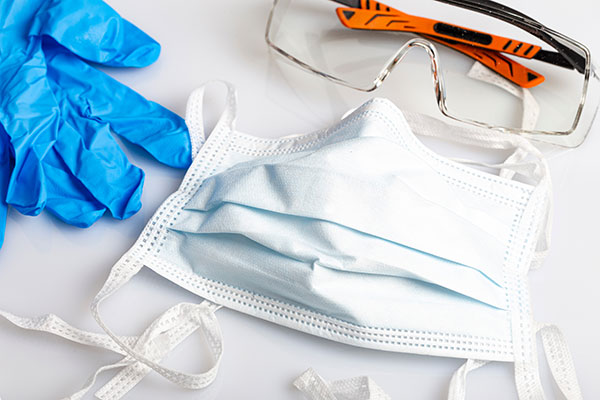How Dental Offices Are Adhering to Infection Control During COVID-19

In light of recent events regarding the COVID-19 outbreak, there is a need to understand how dental offices are meeting infection control guidelines. The Centers for Disease Control and Prevention (CDC) has updated its situation report about the Coronavirus virus. Based on CDC guidelines, the American Dental Association (ADA) has provided a detailed handout for dental professionals on how to handle patient assessment and adhere to infection control measures.
Infection control measures
Dental offices are paying attention to infection control now more than ever, considering how easily the disease spreads. Dental professionals have to work closely with patients and therefore, have developed better ways to handle sterilization and disinfection. Infection control measures in dental offices prevent the spread of the disease.
To keep the patients and the dental staff safe, every exposed surface in the dental office, from dental chairs and drawer handles to dental lights and countertops, have been cleaned and disinfected. Every equipment is covered with protective coverings and changed after every patient. The infection control measures to minimize the risk of transmitting COVID-19 include the following.
Handling dental tools
Before attending to the next patient, non-disposable items like dental instruments are cleaned and sterilized. Disposable dental tools and needles are discarded and never reused. Infection control measures include all dental staff wearing proper personal protective equipment such as masks, gowns, gloves and eyewear. After attending to the patient, they will throw away disposable masks and gloves. Before meeting the next patient, everyone in the treatment department will wash their hands and wear a new pair of gloves.
Dental offices follow protocols suggested by relevant authorities regarding disinfection, decontamination, sterilization and reprocessing of reusable tools and disposing of clinical wastes. They also ensure that sterile instruments are safe from recontamination by using proper barrier packaging. Single-use tools are used if sterilization is not possible. They exercise care when handling sharp tools, take them away after use and dispose of them in a puncture-resistant container.
Biopsy specimens are handled cautiously and stored in leak-proof containers as recommended. Disinfection protocols are used for prostheses, instruments, impressions and relevant items moved into and from the dental lab.
Appropriate hand hygiene: Every dental professional will wash their hands with non-antimicrobial soap and water, an alcohol-based hand sanitizer, or antiseptic handwash after encountering possible respiratory secretions and contaminated tools or materials.
Proper respiratory hygiene and cough etiquette: Keep the mouth and nose covered when sneezing or coughing, if possible, with one's arms, not hands. The nearest waste container is for disposing of tissues, and the next step is to clean the hand properly.
Proper contact precautions: Dental professionals will identify patients with acute respiratory conditions during check-in, place them in a single-patient room and keep the door shut.
In conclusion
Members of the dental healthcare team are obligated to stay updated with the diagnosis and management of infectious diseases that can spread in the clinical setting, comply with standard precautions and the transmission-based precautions as established by the relevant bodies and take proper measures regarding infection control to keep themselves and their patients safe against infections.
Request an appointment here: https://okamotoandbigleydentistry.com or call Okamoto and Bigley Dentistry at (626) 472-2178 for an appointment in our Pasadena office.
Check out what others are saying about our services on Yelp: Read our Yelp reviews.
Related Posts
Modern dentistry is improving with new technology that enhances patient comfort, convenience, and results. One of the most notable innovations is CEREC. A CEREC dentist provides same-day dental restorations with great precision and efficiency. Choosing this dental provider can change your treatment experience by making it quicker, more reliable, and more comfortable. Here are five…
Dentures are a widely used solution for individuals who have lost multiple teeth. However, despite their long history and proven effectiveness, several misunderstandings about dentures persist. These misconceptions can lead to unnecessary hesitation or to people not pursuing the care they need, affecting their oral health and comfort. Clarifying these misunderstandings can help those considering…
Minor chips, cracks, and gaps in the smile do not have to be permanent. Dental bonding is a quick yet durable way to repair teeth with these cosmetic imperfections. With natural-looking results and minimal preparation, bonding can support oral health and restore the smile to its prior radiance.Dental bonding is a cosmetic procedure in which…
No other oral restorations are like dental implants when it comes to replacing missing teeth. These are the only solution for missing teeth that replaces the roots of teeth. These roots serve an important purpose: keeping the jaw stimulated and healthy.When missing teeth are not replaced with dental implants, the person's jaw will begin to…
